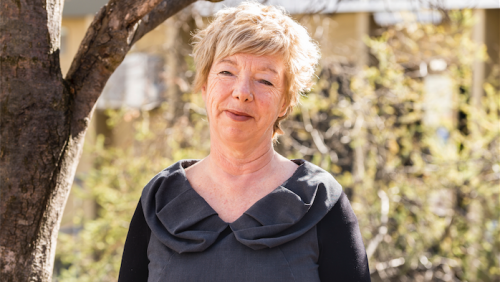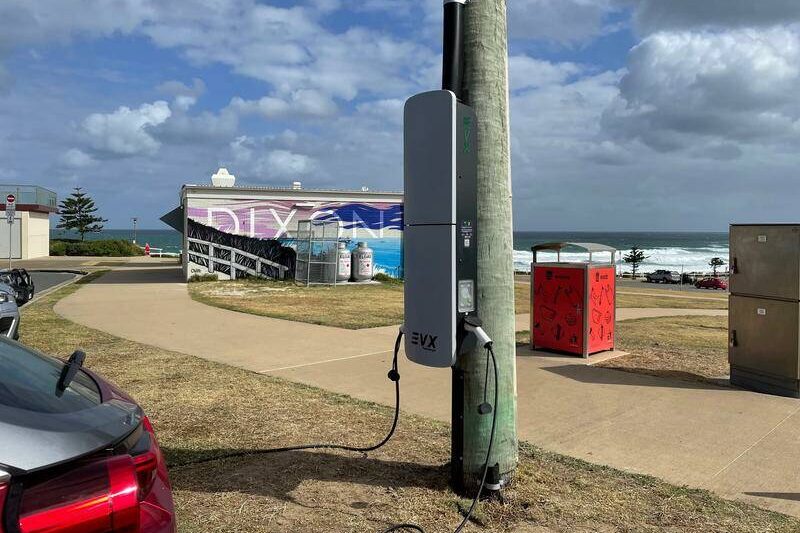
DEMENTIA needs to be front and centre as a major health factor in our community, says new CEO of Alzheimer’s Australia ACT Jan Chorley.
“I really believe that dementia needs a lot more focus,” she says.
“As a disease it’s already having a big impact here and is likely to have a bigger impact as the community ages.”
Jan came to Canberra from Adelaide for the role of CEO in January, with a background in the executive management of national and state not-for-profit organisations, including CEO of the Repat Foundation in SA.
“My experience in Canberra so far has been marvellous, I think it’s a wonderful city,” she says.
“I love the national element of it, that it’s the go-to place politically, but I also love the community and cohesive organisations that represent every walk of life.”
This particular role for Jan is personal, too.
“My mother was diagnosed with Alzheimer’s and it was such a profound learning experience that it galvanised me to look at this role,” she says.
“Mum died of the disease years ago, but it took a long time before I could talk about it because it was such a difficult experience to witness. And that’s largely because the support wasn’t there.
“As a whole, the aged-care sector has come a long way, but we still have a long way to go.”
Jan says that while we have much to learn about the contributors to dementia, there are risk factors that feed into the disease and things that we can all do to reduce our risk.
“They’re the things that we already know we should be doing, and they’re common to reducing heart disease as well, a neat parallel process – exercise, diet, being well socialised, strong community connections, being involved with things that you love, keeping the brain active – and that means more than just the daily crossword puzzle,” she says.
“My passion is to ensure that every person living with a diagnosis of dementia and their families are connected into our work, so that we can support them throughout their life.”
Jan says the support can take many forms and is dependent on the needs of each individual, so she sees her role as ensuring that Alzheimer’s Australia’s many services are known across the ACT.
“We’re linked into national and international research, and we’re an advocate for people who are living with dementia and their families,” she says.
“We’re here to provide education to everyone from post office workers to academics, because 80 per cent of people with dementia live in the community.”
Jan is hosting the Alzheimer’s Australia ACT Business Breakfast on September 2, where director of the Australian War Memorial Dr Brendan Nelson will look at the impact of war and dementia.
“This will be a unique experience in identifying that some of our outstanding veterans who suffered PTSD have gone on to develop dementia. It’s perhaps a relationship that hasn’t been understood,” she says.
“That’s not to say that everyone who has PTSD will get dementia, but it’s another facet of the disease.”
Jan says she appreciates her role because she feels the organisation really does make a difference.
“We are making a difference in people’s lives and we get that feedback all the time,” she says.
“Our team here are extraordinary and the lengths they’ll go to ensure people get the best services possible is what attracted me and inspires me.
“We could be doing more though – we need to ensure that people are not alone in their disease process, that they are connected into the community and that they can live a full and meaningful life – we have so many examples of that.
“Our research demonstrates that people’s quality of life can be enhanced by these activities that we engage people in, walking groups, trips to the museum, social activities. And we want to build on that.”
Jan says the future for Alzheimer’s Australia ACT is dependent on donations and goodwill.
“Government support is important, but it’s not going to be the only way to take the organisation forward and provide the services that we would like to, which is why we’re wanting to enhance our fundraising efforts,” she says.
She says there is still a lot of misinformation about dementia, particularly that people think it’s part of getting old.
“One of the issues for us is younger onset dementia, in people under 65, which of course is of great concern,” she says.
“They may have children at home and a mortgage, and the aged care facilities available are not necessarily the best fit for someone who’s younger.
“There’s a lot of work we’ll be doing in that space as we go forward.”
The Alzheimer’s Australia ACT Business Breakfast, September 2, QT Hotel, London Circuit. Tickets are $75 and bookings via eventbrite.com.au
Who can be trusted?
In a world of spin and confusion, there’s never been a more important time to support independent journalism in Canberra.
If you trust our work online and want to enforce the power of independent voices, I invite you to make a small contribution.
Every dollar of support is invested back into our journalism to help keep citynews.com.au strong and free.
Thank you,
Ian Meikle, editor




Leave a Reply